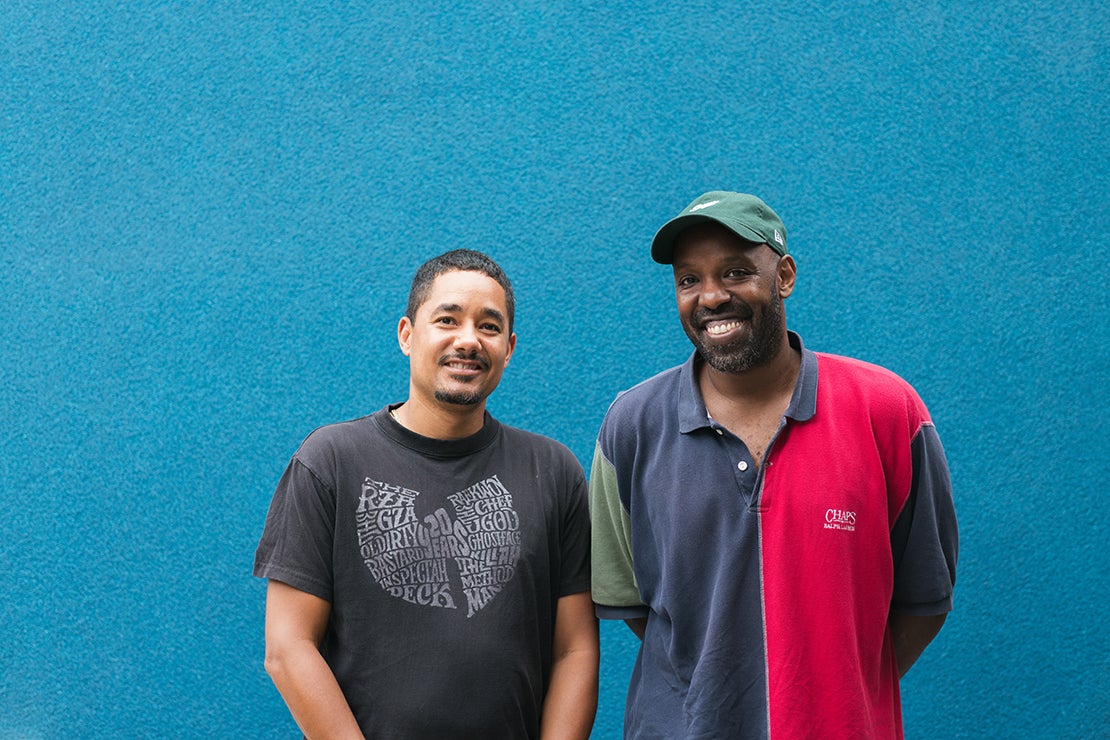
Shadrach Kabango and Kofi Hope grew up immersed in hip-hop culture in the late 1990s, making music in basements, freestyling and participating in cyphers.
Today, Shad, as he is best known, is a Juno-award winning artist and rapper, while Hope is an academic and community advocate working with Black youth – and they’ve teamed up to share their knowledge via a new course at the University of Toronto called Hip-Hop and the City.
The graduate-level course is being offered by U of T’s School of Cities – a multidisciplinary hub at U of T for urban research, education and engagement – in collaboration with the Faculty of Music.
The course uses hip-hop music and culture as a lens to explore historical urban issues. It also examines how these issues shape cultural expression and how culture, in turn, shapes cities – all while providing a platform for students to develop innovative solutions to today’s urban challenges.
“We’re focused on giving folks the foundation,” says Hope about the course.
“So, what’s the origin of the culture? Where did it come from? How did it start to disseminate across the U.S.? And touching on how it went global. But there’s many parts of that story.”
Shad and Hope encourage students to bring their full selves to the class.
“The class will be a mix of music students and students from other disciplines – so this opportunity for mutual learning,” says Shad, who hosted Netflix’s Peabody and Emmy Award-winning documentary series Hip-Hop Evolution. “If people participate fully, I think it’s going to be really rich and special.”
Hope says there’s always something new to learn about the global phenomenon that is hip-hop.
“I’m hoping to learn about sub-communities and sub-genres of the culture that I’m not familiar with,” says Hope, an urbanist-in-residence at the School of Cities. “We can really help to build a greater understanding of this thing that now is beyond just being South Bronx culture.”
This post was originally published on this site be sure to check out more of their content.







